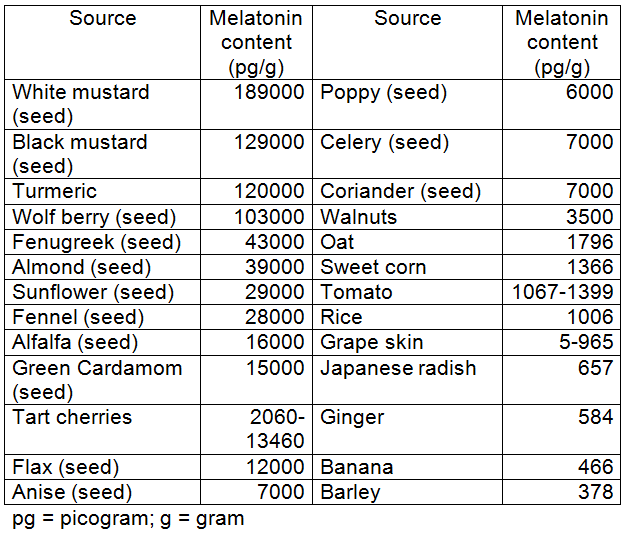
|
Eng |
Associate Professor Vimol Srisukh Department of Food Chemistry, Faculty of Pharmacy, Mahidol University.
Melatonin in the body
Oxidative stress is an imbalance between the production of reactive oxygen species and antioxidant defenses. It is involved in several pathological conditions including aging. Melatonin is a hormone produced by pineal gland in the brain, according to a circadian rhythm, with a maximal secretion at night. The melatonin level in the blood ranged from 10 to 60 pg/mL during day and night, respectively. Since melatonin is both hydrophilic and lipophilic, it is different from other antioxidants that it can cross physiological barriers in order to reduce oxidative damage in both lipid and aqueous cell environments.
Melatonin as a dietary supplement
Melatonin, as a dietary supplement, has been popularly used in jet lag; melatonin was reported to synchronize the sleep/wake cycle and alleviate the symptoms. Melatonin has also been used for insomnia in the elderly, etc. Other beneficial effects such as antioxidant, anti-inflammatory activities have been reported as well. The typical low oral dose range used is 1-5 mg. Higher doses, which have been reported in other clinical studies such as anticancer studies, are in the range of 10-40 mg.
Melatonin in foods
Melatonin could also be found in several foods and plants. Its variable presence has been reported in roots, leaves, fruits and seeds of plants. Increasing melatonin intake from foods might increase the melatonin level in blood plasma and could be of a therapeutic potential. Melatonin may exhibit the antioxidant activity synergistically with other antioxidants in plants. Clinical studies have shown that melatonin could be efficient in preventing cell damage, metabolic and neurodegenerative diseases, cancer, inflammation and aging. Some of the dietary sources of melatonin are listed in the following table. 